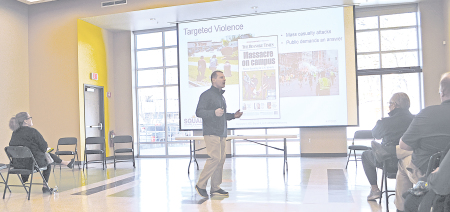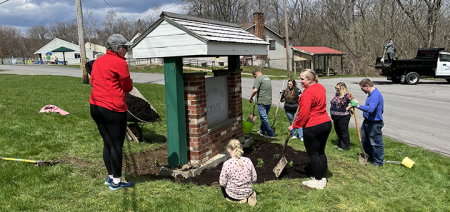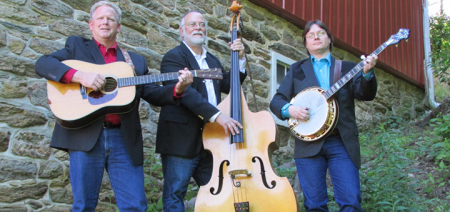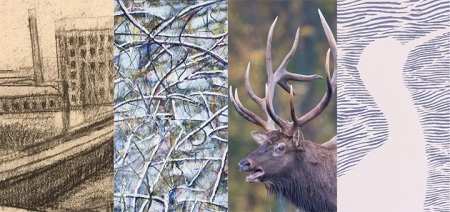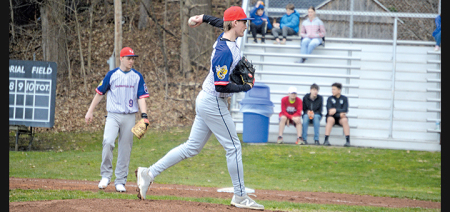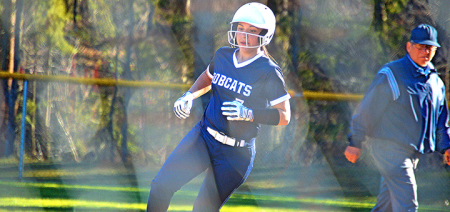Saturday Summer Series Underway At Chenango County Historical Society
Published:
June 27th, 2024
 Learn all about indigenous beadwork – a central artform and economic activity of Oneida culture since the 1800s – during the next session of the “Saturday Summer Series” at the Chenango County Historical Society (CCHS). This Saturday at 10:30 a.m., join Jessica Farmer of the Shako:wi Cultural Center to make a beaded strawberry and to learn about the significance of beadwork in Haudenosaunee Culture. Sponsored by the Otis A. Thompson Foundation, the “Saturday Summer Series” is inspired by the national commemoration of America250. (Submitted photo)
Learn all about indigenous beadwork – a central artform and economic activity of Oneida culture since the 1800s – during the next session of the “Saturday Summer Series” at the Chenango County Historical Society (CCHS). This Saturday at 10:30 a.m., join Jessica Farmer of the Shako:wi Cultural Center to make a beaded strawberry and to learn about the significance of beadwork in Haudenosaunee Culture. Sponsored by the Otis A. Thompson Foundation, the “Saturday Summer Series” is inspired by the national commemoration of America250. (Submitted photo)
NORWICH – The Chenango County Historical Society (CCHS) is proud to announce that the inaugural season of the “Saturday Summer Series” is now underway. Created to connect community with local history in engaging ways, the series begins at 10:30 a.m. each Saturday morning on the CCHS campus, located at 45 Rexford St. Sponsored by the Otis A. Thompson Foundation, this year’s series is inspired by the national commemoration of America250.
The CCHS “Saturday Summer Series” is the first of many local activities being planned to honor this nationwide milestone, with commemorations continuing now through 2033. Series topics will connect to America250 themes, such as “Changing Interpretations of the Revolution,” “Indigenous History,” and “Unfinished Revolutions.” Last week’s session on “The Bicentennial in Chenango County and an Introduction to Chenango Stories” was based on the America250 theme: “Doing History.”
The June 29 session will feature indigenous beadwork, a central artform and economic activity of Oneida culture since the 1800s. Jessica Farmer, the Oneida Nation’s cultural programs coordinator at the Shako:wi Cultural Center, will lead this engaging activity. Museum guests will make their own beaded strawberry to celebrate the start of summer while learning about the significance of beadwork in Haudenosaunee Culture. Samples of Haudenosaunee beadwork from the Oneida Nation’s collection will be on display.
On July 6, museum guests will experience “The Civil War, Letter Writing, and Thinking of Home.” This session is based on the life of Sarah Rosetta Wakeman, aka Lyons Wakeman, a woman from Afton who enlisted in the Union army during the Civil War under a male alias. Her story is known today because she frequently wrote letters home, which were preserved and published several decades ago. Guests will hear quotes from Wakeman’s letters home and reflect on their own concept of home and the people who are there. The program will conclude with visitors writing a letter home and folding the paper in various ways that were common during the Victorian era.
“Thanks to this generous investment from the Otis A. Thompson Foundation, we are able to offer dynamic new museum programming,” said Jessica Moquin, CCHS executive director. “This support allows us to commemorate America250 in a way that is truly unique to Chenango County’s cultural heritage.”
America250 is a multi-year initiative to engage people with the semiquincentennial anniversary of our country. It is an opportunity for communities to pause and reflect on our nation’s past, honor the contributions of all Americans, and look ahead toward the future for the next generation and beyond.
First established in 1939, CCHS is the primary organization dedicated to actively and comprehensively preserving the history of Chenango County. The area’s premier heritage museum, the organization celebrates local culture – its enduring traditions, noteworthy residents, and unique stories. CCHS programs are made possible by the New York State Council on the Arts with the support of the Office of the Governor and the New York State Legislature. For more information, visit www.ChenangoHistorical.org or call (607) 334-9227, ext. 2.
The Chenango County Historical Society explores the culture of Chenango County – its enduring traditions, noteworthy residents, and unique stories – through preservation and presentation of local heritage.
– Information from the CCHS
Comments
